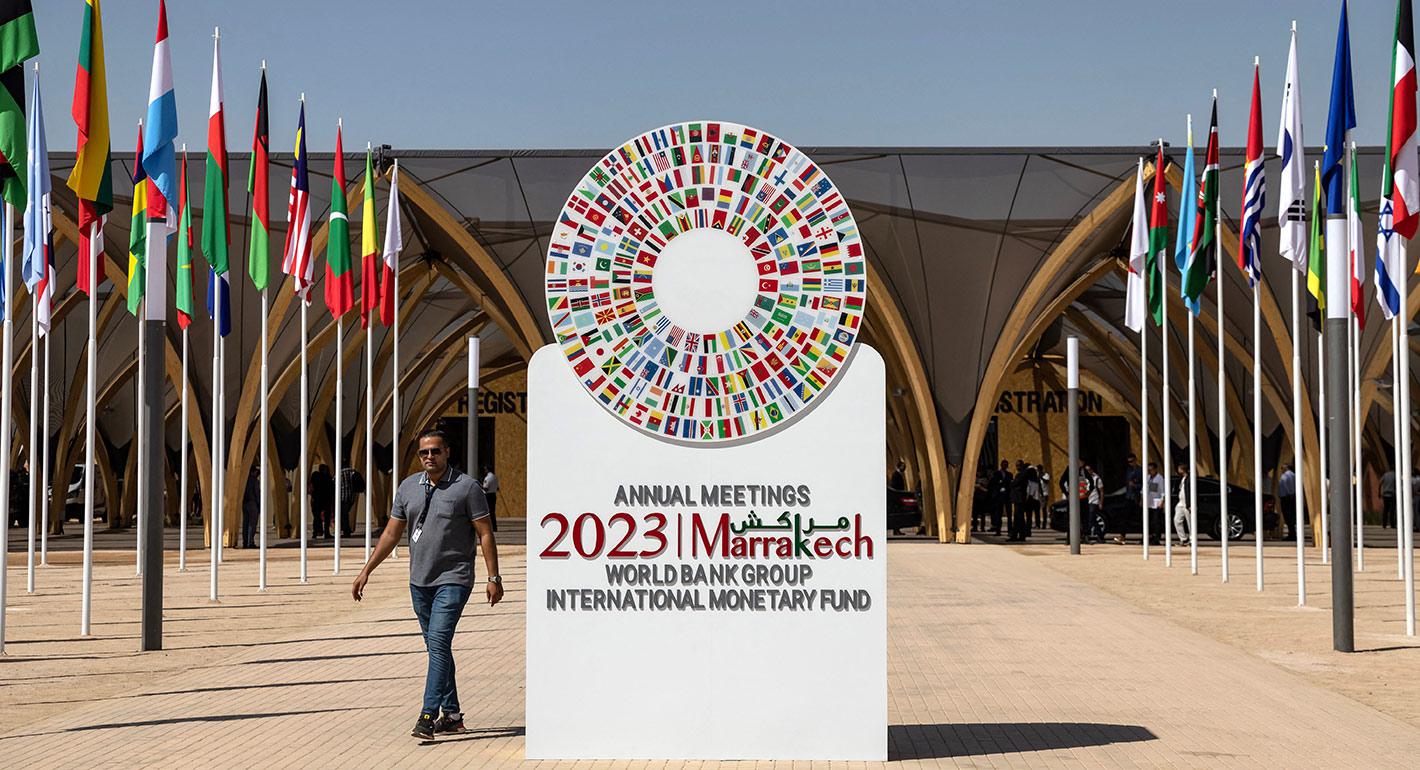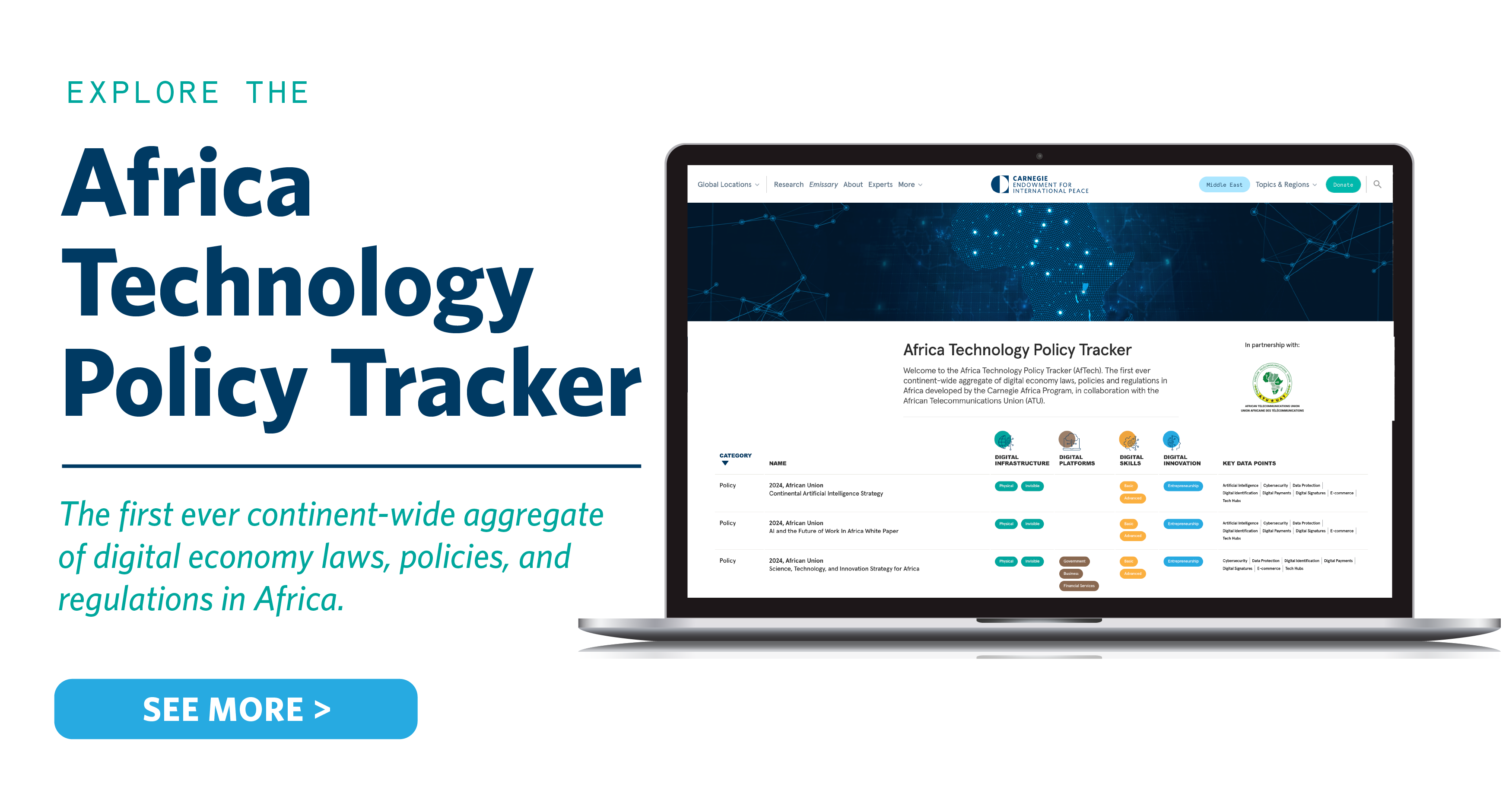The Africa Program focuses on economic, political, and transnational issues shaping Africa’s future. By conducting data-driven research, convening high-level dialogues, forging strategic partnerships, and amplifying African voices, the program addresses a crucial knowledge gap on Africa’s role in a changing global environment.
Program experts
Katie Auth
Nonresident Scholar, Africa Program
Ramsey Day
Nonresident Scholar, Africa Program
Kholofelo Kugler
Nonresident Scholar, Africa Program
Nicolas Lippolis
Nonresident Scholar, Africa Program
Jane Munga
Fellow, Africa Program
Christian-Géraud Neema
Nonresident Scholar, Africa Program
Zainab Usman
Director, Africa Program
Focus
Key Areas of Research
Focus
Key Areas of Research

Climate Change
The Africa Program’s Climate Change work examines the intersection of global decarbonization policies and innovations with Africa’s economic development priorities.

Climate Change
The Africa Program’s Climate Change work examines the intersection of global decarbonization policies and innovations with Africa’s economic development priorities.

Technology
The technology initiative at the Carnegie Africa Program seeks to provide policy makers and stakeholders with practical policy insights to bridge Africa’s digital divide and increase connectivity gains across the continent.

Technology
The technology initiative at the Carnegie Africa Program seeks to provide policy makers and stakeholders with practical policy insights to bridge Africa’s digital divide and increase connectivity gains across the continent.

Trade
Our work on trade examines the changing landscape of Africa’s trade relations and the implications of regional integration for export diversification and new trade agreements for access to global markets as well as the future of the Africa Growth and Opportunity Act.

Trade
Our work on trade examines the changing landscape of Africa’s trade relations and the implications of regional integration for export diversification and new trade agreements for access to global markets as well as the future of the Africa Growth and Opportunity Act.

Investments
The Africa Program’s Investments work analyzes how public and private investment flows can better support Africa’s economic resilience.

Investments
The Africa Program’s Investments work analyzes how public and private investment flows can better support Africa’s economic resilience.

External Relations
We examine the implications for Africa of the changing external strategies of major global actors and outline concrete policy recommendations towards mutually beneficial outcomes that advance international cooperation.

External Relations
We examine the implications for Africa of the changing external strategies of major global actors and outline concrete policy recommendations towards mutually beneficial outcomes that advance international cooperation.
Many African countries are endowed with significant reserves of the minerals and metals necessary to the global energy transition. While these endowments represent the potential for significant economic windfalls, they also place African countries at the center of geoeconomic competition as great powers seek to secure the supply chains necessary for their own economic and national security.
Our work on Africa’s Natural Resources in the Global Energy Transition provides insights into how African countries can harness the opportunities and minimize the risks of this surging global interest in their mineral endowments to advance their economic development objectives.
Many African countries are endowed with significant reserves of the minerals and metals necessary to the global energy transition. While these endowments represent the potential for significant economic windfalls, they also place African countries at the center of geoeconomic competition as great powers seek to secure the supply chains necessary for their own economic and national security.
Our work on Africa’s Natural Resources in the Global Energy Transition provides insights into how African countries can harness the opportunities and minimize the risks of this surging global interest in their mineral endowments to advance their economic development objectives.
Events from the Africa Program
Events from the Africa Program
Digital Feature
African Climate Research Organizations
A compilation of Africa-based research organizations working on climate-related technical and policy issues.


Digital Feature
Africa Technology Policy Tracker
The Africa Technology Policy Tracker (AfTech) is the first ever continent-wide aggregate of digital economy laws, policies and regulations in Africa developed by the Carnegie Africa Program, in collaboration with the African Telecommunications Union (ATU).


.jpg)



